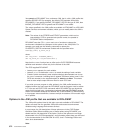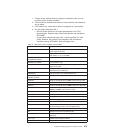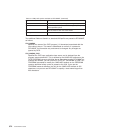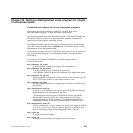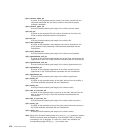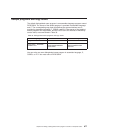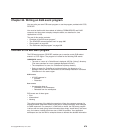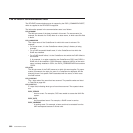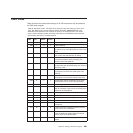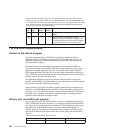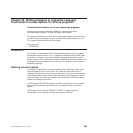
The DFHEJEP communications area
The DFHEJEP communications area is mapped by the EJEV_COMMAREA DSECT,
which is supplied in the DFHEJEPH copybook.
The information passed in the communications area is as follows:
EJEV_BEANNAME
The 240-byte name of the bean involved in this event. For some events (for
example, the discard of a DJAR) there is no bean name, in which case this field
is blank.
EJEV_CORBASERVER
The 4-byte name of the CorbaServer for which this event is relevant. For
example:
v For a scan event, it is the CorbaServer whose “pickup” directory is being
scanned.
v For a DJAR successful-install event, it is the CorbaServer into which the
DJAR was installed.
v For a DJAR install failure, it is the CorbaServer into which the DJAR failed to
be installed.
If, for example, in a region containing two CorbaServers COR1 and COR2, a
DJAR fails to be installed in COR2 because a deployed JAR file of the same
name is already installed in COR1, the EJEV_CORBASERVER field contains
'COR2'.
EJEV_DJAR
The 32-byte name of the DJAR resource to which this event applies. For some
events (for example, the start of a scan of a CorbaServer’s deployed JAR file
directory) there is no specific DJAR associated with the event, in which case
this field is blank.
EJEV_EVENTCODE
The 1-byte code of the event that has occurred. The possible codes are listed
in Table 36 on page 681.
EJEV_EVENTTYPE
A 1-byte field, indicating what type of event has occurred. The equated values
are:
EJEV_ERROR
An error event. For example, CICS was unable to access the UNIX file
system.
EJEV_INFO
An informational event. For example, a DJAR is now in service.
EJEV_WARNING
A warning event. For example, a bean could not be retracted from the
JNDI namespace because it did not exist.
680 Customization Guide



